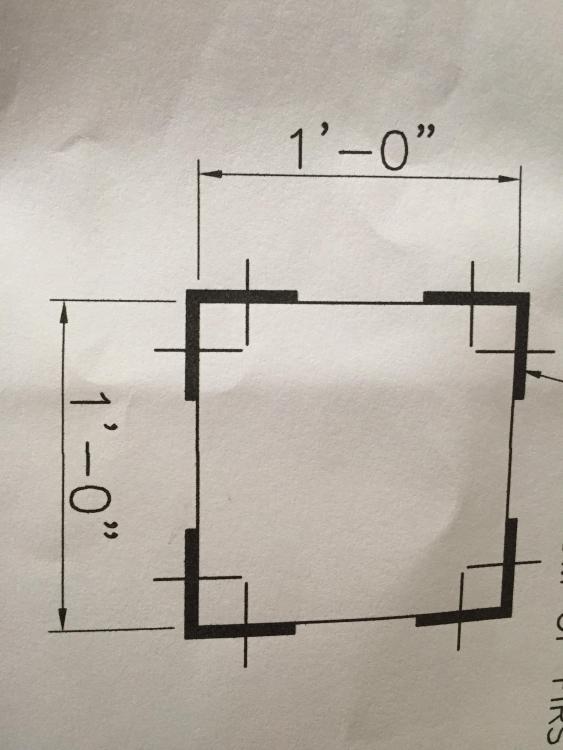-
Posts
108 -
Joined
-
Last visited
-
Days Won
23
Content Type
Profiles
Forums
Events
Everything posted by Fatima Khalid
-

Research Proposal for MS Research Assistantship
Fatima Khalid replied to Muhammad Khalid's topic in Students Zone
Go through relevant literature (means research papers), and read recommendation part to find the research gap. Then highlight this gap and write proposal accordingly. For your reference, you can download this paper. If interested in this topic, you can find similar papers from references of the same article. https://www.worldscientific.com/doi/10.1142/S0219455419501396 -

Bridge Failure in INDONESIA
Fatima Khalid replied to Waqar Saleem's topic in Engineering Marvels & Disasters
@waqar saleem This link is not working -
if you are looking for some books to cover all the topics so to get admission in masters I would recommend to buy “Civil Engineering theory and MCQs by R.Agor” but it has some topics/specifications in terms of IS code due to indian author.
-

Stress Strain Curve and Hysteresis model
Fatima Khalid replied to Engr. Muhammad Farhan's topic in Concrete Design
I will recommend you to go through these two documents to understand the difference between hysteresis and simple stress strain curve (monotonic curve) http://web.mit.edu/course/3/3.11/www/modules/ss.pdf https://etda.libraries.psu.edu/files/final_submissions/4432 For nonlinear analysis(cyclic loading), hysteresis rules are required. In SAP2000, there are two models Pivot Hysteresis and Takeda Hysteresis. I dont know that whether SAP2000 has option for user defined hysteresis model or not. The hysteresis model will affect the force-deformation graph that is produced on links or hinges. -
@Saifuddin18 are you sure that unsupported length would be 4’ rather than 6’?
-
While doing seismic assesment using FEMA357, there is a provision for captive columns whether they are present in a structure or not? So the documents states that “There should be no column with height to depth ratio less than 75% of the nominal height to depth ratio of column at that level” If its more than 75%, it means a captive column is present in the structure Now I am confused what is height to depth ratio of column? and what are we comparing this column with?
-
Asalamualaikum It is said that “ There should be no columns with height to depth ratio less than 75% of the nominal height to depth ratio of typical column at that level” for example I have a building having column clear height 10feet and its cross section is 18”x 18”, next to column there is an opening of 3ft wide by 6 feet high till the soffit of the beam. How to check the above provision? what height to depth ratio is need to be considered. I have studied that depth of the column should be parallel to wall? why it needs to be parallel to the wall? Nominal height to depth ratio = 10feet/18inch short column height to depth ratio (unsupported) = 6feet/3feet Is the above calculation correct? Thanks
-
Use MatLab To transform frequency-domain iddata object f_data to time-domain iddata object t_data, use: t_data = ifft(f_data) or check this link https://www.mathworks.com/help/signal/examples/practical-introduction-to-frequency-domain-analysis.html
-

6/5 beam to column capacity check in the last floor
Fatima Khalid replied to Ali Karami's topic in Seismic Design
Thanks @Ali Karami and @BAZ -

Masonry Infill Modeling in SAP2000
Fatima Khalid replied to Engr. Muhammad Farhan's topic in Software Issues
You can use truss element to represent equivalent diagonal strut. Yes, you have to provide axial hinge at center. There are different models for strut width according to different conditions of aspect ratios, openings and infill properties. You need to do literature review to select the best model. For instance, Crisafulli and Carr (2007) model can be used for infill with opening For more information, Refer Kumar, M., Khalid, F., & Ahmad, N. (2018). MACRO-MODELLING OF REINFORCED CONCRETE FRAME INFILLED WITH WEAK MASONRY FOR SEISMIC ACTION. NED University Journal of Research, 15(1), 15-38. Nadeem, K., & Mohammad, A. F. RESPONSE OF REINFORCED CONCRETE BUILDING STRUCTURES SUBJECTED TO MULTIPLE SEISMIC SHOCKS. -

Ground Motion Data Conversion
Fatima Khalid replied to Engr. Muhammad Farhan's topic in Seismic Design
You can use SeismoSignal software as well to convert time domain to frequency domain and vice versa -
@Rana will this structure be considered as mass irregular structure? Like for mass irregularity, there should be mass difference of 50% between two adjacent stories as mentioned in fema357.
-
Asalamualaikum, We have so many industrial buildings which have concrete moment resisting frame system. In Pakistan, I have seen some industrial buildings having a storey constructed at roof with steel structure. Like RC structure is constructed and after few years, they have constructed a storey with steel roof. Sometime the concrete columns at periphery are extended upto a level and then steel I section is provided till steel roof. Steel roof made of rafters and purlins. In case of analysis/seismic assessment, Do we need to consider this storey as a storey while distributing base shear. OR should we consider only RC structure as a storey and take load of steel roof on the existing columns? Like will it be considered as G+1 structure or only ground storey structure? Thank you
-
Kindly see this video
-
Change the tolerance level and number of iterations
-

Moment Capacity of retrofitted section
Fatima Khalid replied to Fatima Khalid's topic in Concrete Design
Thankyou all.. The people in this forum is always ready to help.. 😇 -
Asalamualaikum I use manual method or Response2000 to find yield moment capacity of RC sections. In case, if I have a section 12”x12” having 4-#6 bars... i can easily calculate the capacity.. but if this section is retrofitted with steel L4”x4”x3/8” member at all four corners then how can I calculate the moment capacity? (see attached picture, the bold corners showing L shape steel members) Thank you
-

Develop Stress Strain Curve (Mander) using SAP2000
Fatima Khalid replied to Fatima Khalid's topic in Concrete Design
@BAZ I was unable to get the desired results on SAP2000 using solid element. So I have found out that material non-linearity in solid elements can be considered only by using Link elements. In my criteria, I can not place link elements. Therefore, the concluded result is that I can not simulate compressive strength test using SAP2000 -
Asalamualaikum, I want to verify the Mander nonlinear concrete model using SAP2000. I have taken default material properties of concrete 4000 psi. Then I have made a 6x6x6 inches cube and the technique was to apply load and note down the deformations. Then I have converted Load into stress and deformation into strain. Unfortunately I am getting Linear stress strain graph. Any idea how can I develop stress strain graph by representing concrete compression cube test.
-
Asalmualaikum all, Anyone know any example verified in SAP software regarding ritz analysis. I am looking for an example in which I can verify the results using Ritz and Eigen Value analysis. Thanks for the help
-
Some workshops are going on throughout Pakistan by Naveed Anwar from AIT namely "Performance Based Design of Tall Structures" They provide Hands-on training. Recently in April 2018 workshop was conducted in NEDUET. I think it recently occurred in NUST as well in October 2018. I would recommend you to attend this workshop whenever it is going to held in future for detailed information
-

Bending moment of a simply supported beam
Fatima Khalid replied to Engr Sabir Baloch's topic in Students Zone
Please read Statics and Dynamics OR structural analysis by RC Hibbeler. -
You can use the following paper. it have manual verification as well. But I hope you should try doing it yourself and then check the manual verification. because learning is more important Crack Identification in Reinforced Concrete Beams Using ANSYS Software L. Dahmani,a A. Khennane,b and S. Kacia
-
Wa alaikum us salam, SAP and ETABs do not work fully on FEA. You should use paper showing results regarding stress distribution, strains, etc. Search for papers using softwares like ANSYS, LS DYNA, DIANA, ABAQUS, ATENA, etc. Right now, for initial stage, I would recommend you to search for FEA of simple beam. Let me know, if you require any further help.
-

Any software to find area under the curve?
Fatima Khalid replied to Fatima Khalid's topic in Spreadsheets & Softwares
I have calculated using autocad and excel. Thankyou all




